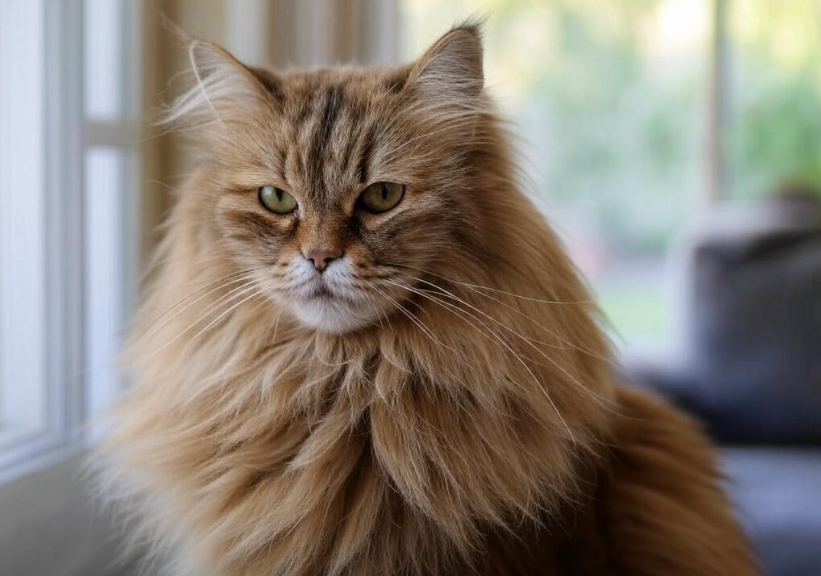
How to Handle Maine Coon Aggression Toward Other Pets
Maine Coon cats, often celebrated as “gentle giants,” are beloved for their friendly, sociable nature and striking appearance. However, like any breed, Maine Coons can sometimes display aggression, particularly toward other pets in the household. Understanding and addressing Maine Coon aggression is crucial for creating a harmonious multi-pet environment. This comprehensive guide explores the causes of aggression in Maine Coons, practical strategies to manage it, and preventative measures to foster peace among your pets. Whether you’re a new or seasoned Maine Coon owner, this article will equip you with the tools to handle aggression effectively.
Table of Contents
ToggleUnderstanding Maine Coon Aggression
Maine Coon cats are typically amicable, often getting along well with other animals due to their dog-like demeanor. However, aggression toward other pets—such as dogs, cats, or smaller animals—can occur for various reasons. Recognizing the signs and triggers of Maine Coon aggression is the first step toward addressing it.
Common Signs of Aggression in Maine Coons
Hissing or Growling: Vocal warnings directed at other pets.
Swatting or Scratching: Physical attempts to assert dominance or defend territory.
Chasing or Stalking: Targeting another pet with predatory behavior.
Body Language: Flattened ears, puffed-up fur, or a swishing tail indicate agitation.
Blocking Access: Preventing other pets from accessing food, litter boxes, or favorite spots.
Why Maine Coons May Show Aggression Toward Other Pets
Maine Coons may exhibit aggression due to a combination of instinctual, environmental, and behavioral factors. Understanding these causes can help you address the root of the issue:
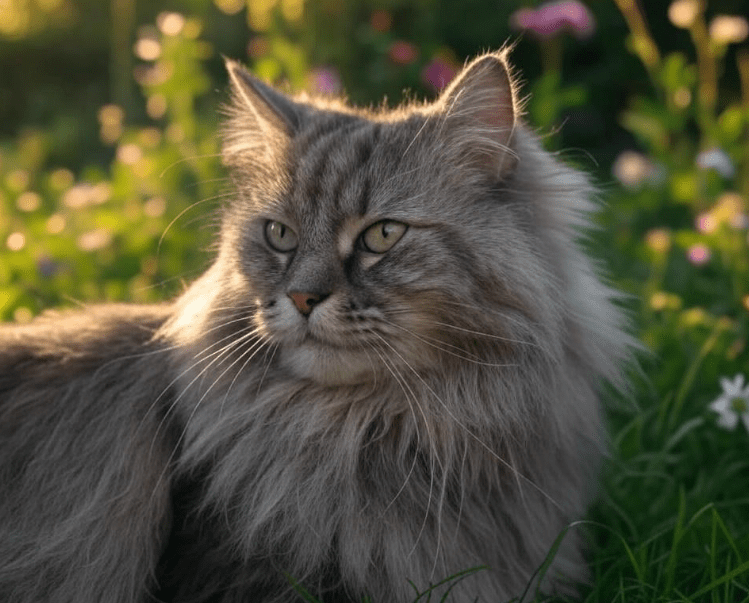
Territorial Instincts: Maine Coons are large and may feel the need to establish dominance over shared spaces.
Resource Guarding: Aggression can arise when a Maine Coon feels food, toys, or attention are threatened.
Lack of Socialization: Insufficient exposure to other animals during kittenhood can lead to poor inter-pet interactions.
Stress or Anxiety: Changes in the household, such as new pets or loud noises, can trigger aggressive behavior.
Health Issues: Pain or discomfort from underlying medical conditions may cause irritability.
Predatory Drive: Maine Coons have strong hunting instincts, which may manifest as chasing smaller pets like birds or hamsters.
Hormonal Influences: Unneutered or unspayed Maine Coons may display heightened aggression due to hormonal fluctuations.
Step-by-Step Strategies to Handle Maine Coon Aggression
Managing Maine Coon aggression requires patience, consistency, and a proactive approach. Below are proven strategies to reduce tension and promote peaceful coexistence among your pets.
1. Identify and Address Triggers
Observe your Maine Coon’s behavior to pinpoint what sparks aggression. Is it a specific pet, location, or resource? Keeping a journal of aggressive incidents can help identify patterns.
Action Steps:
Note the time, place, and circumstances of aggressive episodes.
Look for environmental stressors, such as crowded spaces or loud noises.
Monitor interactions during feeding or playtime to spot resource guarding.
2. Consult a Veterinarian
Undiagnosed health issues can cause aggression in Maine Coons. Pain from dental problems, arthritis, or infections may make your cat irritable.
Action Steps:
Schedule a thorough veterinary exam to rule out medical causes.
Discuss spaying or neutering if your Maine Coon is intact, as this can reduce hormonal aggression.
Ask about blood tests or imaging to check for hidden conditions.
3. Gradual Introductions for New Pets
Introducing a new pet to a Maine Coon requires careful planning to prevent territorial conflicts. Rushing the process can lead to lasting aggression.
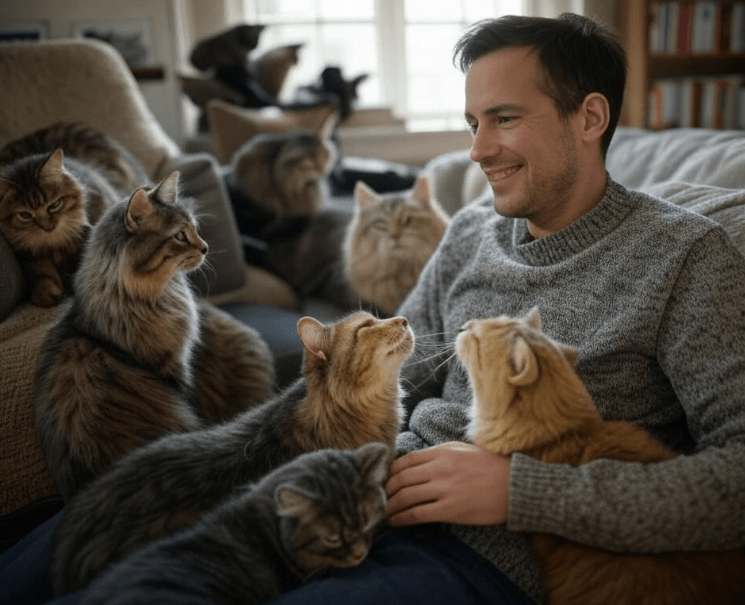
Action Steps:
Scent Swapping: Exchange bedding or toys between the Maine Coon and the new pet to familiarize them with each other’s scents.
Separate Spaces: Keep the new pet in a separate room with their own food, water, and litter box for a few days.
Controlled Visual Contact: Use a baby gate or cracked door to allow pets to see each other without direct interaction.
Supervised Meetings: Gradually introduce short, supervised face-to-face interactions, rewarding calm behavior with treats.
Extend Interaction Time: Slowly increase the duration of meetings as both animals become comfortable.
4. Provide Ample Resources
Competition over resources like food, water, litter boxes, or resting spots can fuel aggression. Ensure each pet has access to their own supplies.
Action Steps:
Follow the “n+1” rule: Provide one more litter box, food bowl, and water station than the number of pets (e.g., three litter boxes for two pets).
Place resources in separate areas to prevent guarding.
Offer multiple elevated perches or hiding spots for your Maine Coon to retreat to.
5. Enrich the Environment
Boredom or pent-up energy can exacerbate aggression in Maine Coons. Environmental enrichment keeps their minds and bodies engaged, reducing stress.
Action Steps:
Provide interactive toys like puzzle feeders or wand toys to channel their energy.
Install cat trees or shelves for climbing and exploration, catering to their large size.
Use treat-dispensing toys to stimulate their hunting instincts.
Rotate toys regularly to maintain interest.
6. Positive Reinforcement Training
Rewarding calm, non-aggressive behavior can reshape your Maine Coon’s interactions with other pets.
Action Steps:
Use high-value treats to reward your Maine Coon for ignoring or calmly observing other pets.
Practice commands like “sit” or “stay” to redirect their focus during tense moments.
Avoid punishing aggressive behavior, as this can increase stress and worsen the problem.
7. Manage Stress and Anxiety
Stress is a common driver of aggression. Creating a calm environment can help your Maine Coon feel secure.
Action Steps:
Use pheromone diffusers like Feliway to promote relaxation.
Maintain a consistent routine for feeding, play, and litter box cleaning.
Provide quiet, safe spaces where your Maine Coon can retreat.
Minimize sudden changes, such as rearranging furniture or introducing new household members abruptly.
8. Desensitization and Counter-Conditioning
These behavioral techniques can help your Maine Coon associate other pets with positive experiences, reducing aggression over time.
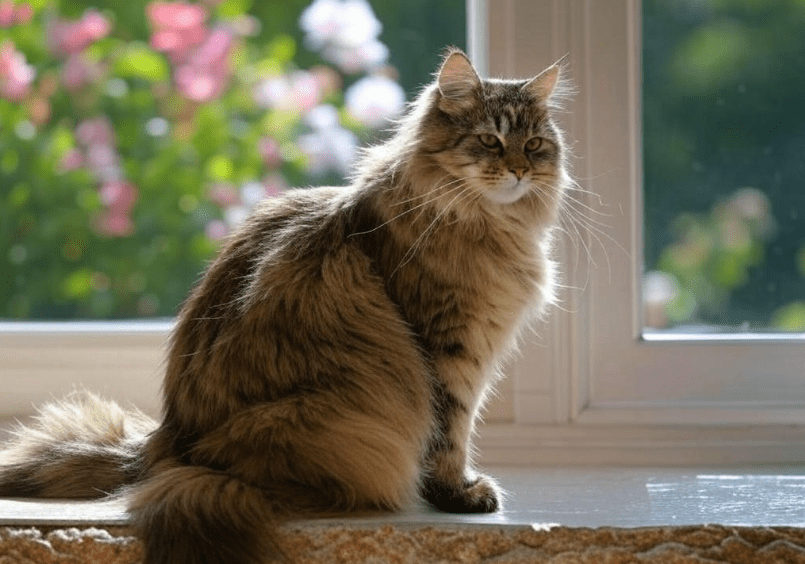
Desensitization: Gradually expose your Maine Coon to the other pet at a distance where they remain calm, slowly decreasing the distance as they adjust.
Counter-Conditioning: Pair the presence of the other pet with something your Maine Coon loves, like treats or playtime.
Action Steps:
Start with the other pet in a carrier at a distance, rewarding your Maine Coon for calm behavior.
Gradually move the carrier closer over days or weeks, always staying below the aggression threshold.
Consult a feline behaviorist for guidance if progress is slow.
9. Separate During High-Risk Times
If aggression occurs during specific situations, such as feeding or play, temporary separation can prevent conflicts.
Action Steps:
Feed pets in separate rooms to avoid food-related aggression.
Supervise play sessions and intervene if tensions rise.
Use barriers like baby gates to create safe zones during high-energy times.
10. Seek Professional Help
If aggression persists despite your efforts, consult a professional, such as a certified feline behaviorist or veterinary behaviorist.
When to Seek Help:
Aggression escalates or results in injuries.
Your Maine Coon shows signs of severe stress, such as excessive grooming or hiding.
You’re unable to identify triggers or make progress.
What to Expect:
A behaviorist will assess your Maine Coon’s environment, health, and interactions.
They may recommend tailored behavior modification plans or, in rare cases, medication for anxiety.
Preventing Maine Coon Aggression in Multi-Pet Homes
Prevention is key to avoiding aggression in Maine Coons. By setting up your household for success, you can minimize conflicts from the start.
1. Early Socialization
Expose your Maine Coon kitten to various animals, people, and environments during their critical socialization period (2–12 weeks). This builds confidence and reduces fear-based aggression later.
Tips:
Arrange playdates with friendly, vaccinated pets.
Introduce them to different sounds, textures, and settings.
Reward positive interactions with treats and praise.
2. Spay or Neuter Early
Unaltered Maine Coons are more likely to display territorial or hormonal aggression. Spaying or neutering before six months of age can prevent these behaviors.
3. Choose Compatible Pets
When adding a new pet, consider your Maine Coon’s personality and energy level. A high-energy dog may overwhelm a reserved Maine Coon, while a calm cat may be a better match.
Tips:
Research breeds or temperaments before introducing a new pet.
Opt for gradual introductions to assess compatibility.
Avoid small animals like hamsters if your Maine Coon has a strong prey drive.
4. Maintain a Balanced Routine
Consistency in feeding, play, and attention helps Maine Coons feel secure, reducing the likelihood of aggression.
Tips:
Schedule daily play sessions to burn off excess energy.
Ensure each pet receives individual attention to prevent jealousy.
Keep litter boxes clean to avoid stress-related conflicts.
Common Mistakes to Avoid
When addressing Maine Coon aggression, steer clear of these pitfalls:
Punishing Aggression: Yelling or physical punishment can increase stress and worsen behavior.
Forcing Interactions: Pushing pets to “get along” can escalate tensions.
Ignoring Health Issues: Failing to rule out medical causes may prolong aggression.
Insufficient Resources: Limited access to food, water, or space can trigger competition.
Rushing Introductions: Quick introductions often lead to territorial disputes.
Understanding Your Maine Coon’s Unique Needs
Maine Coons are distinct from other breeds due to their size, intelligence, and social nature. Their large stature may make them feel dominant in multi-pet households, while their high energy requires ample outlets. Unlike smaller breeds, Maine Coons need robust toys, spacious environments, and careful introductions to thrive alongside other pets.
The Role of Patience and Consistency
Resolving Maine Coon aggression takes time. Behavioral changes don’t happen overnight, and setbacks are normal. Stay consistent with training, environmental enrichment, and positive reinforcement. Celebrate small victories, such as moments of calm coexistence, to stay motivated.
When Aggression Can’t Be Resolved
In rare cases, aggression may persist despite your best efforts. If your Maine Coon’s behavior poses a risk to other pets or household members, consider these options:
Permanent Separation: Keep pets in separate areas of the home with their own resources.
Rehoming: As a last resort, find a loving home for one of the pets where they can thrive without conflict. Work with a reputable rescue or shelter to ensure a good match.
Conclusion
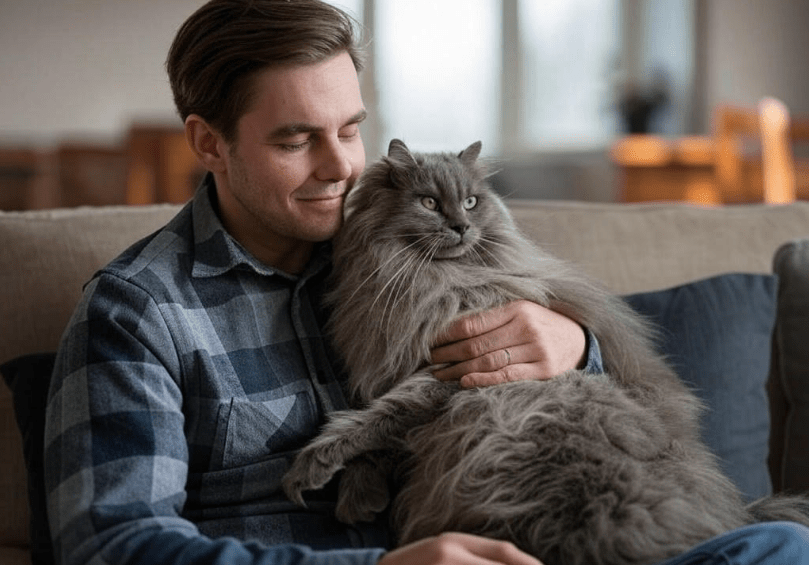
Handling Maine Coon aggression toward other pets requires a blend of understanding, patience, and proactive strategies. By identifying triggers, providing a stimulating environment, and using positive reinforcement, you can help your Maine Coon coexist peacefully with other animals. Early socialization, ample resources, and gradual introductions are key to preventing conflicts in multi-pet households. With dedication and the right approach, you can foster a harmonious home where your Maine Coon and other pets thrive together. If challenges persist, don’t hesitate to seek professional guidance to ensure the well-being of all your furry companions.
